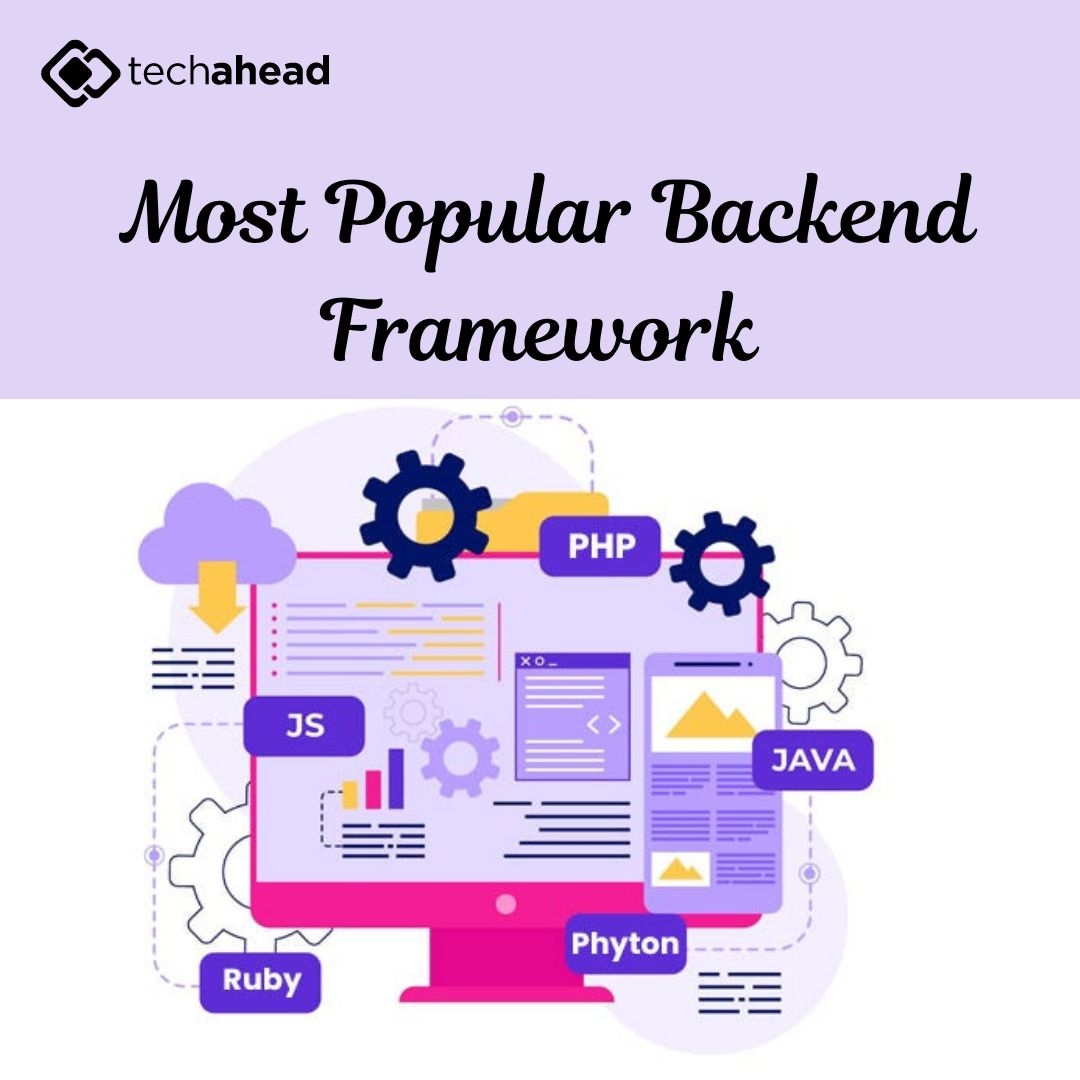Top Backend Frameworks for Web Development in 2024

In the world of web development, the backend plays a crucial role in powering the functionality and performance of websites and applications. The backend framework is the foundation upon which developers build these systems. Choosing the right backend framework is essential for creating scalable, efficient, and maintainable applications.
In this article, we will explore some of the most popular backend frameworks that are currently dominating the web development landscape. We will delve into their key features, benefits, use cases, and considerations for choosing the best framework for your project.
Why Choose Techahead
Techahead is a leading provider of web development services, specializing in building high-performance, scalable, and user-friendly applications. With our team of experienced developers and expertise in the latest technologies, we can help you choose the right backend framework for your project and deliver exceptional results.
Popular Backend Frameworks
There are numerous backend frameworks available, each with its own strengths and weaknesses. Here are some of the most popular options:
1. Node.js
Node.js is a JavaScript runtime environment that allows developers to build fast and scalable network applications. It is particularly well-suited for real-time applications, such as chat apps, online games, and collaboration tools.
Key features:
- Asynchronous programming model
- Event-driven architecture
- Large and active community
- Cross-platform compatibility
Benefits:
- High performance and scalability
- Reduced development time
- Easy to learn for JavaScript developers
- Versatility for building various types of applications
Use cases:
- Real-time applications
- Single-page applications (SPAs)
- RESTful APIs
- Internet of Things (IoT) applications
2. Ruby on Rails
Ruby on Rails is a full-stack web application framework that emphasizes convention over configuration. It is known for its rapid development capabilities and productivity features.
Key features:
- Model-View-Controller (MVC) architecture
- Convention over configuration
- Built-in scaffolding
- Large ecosystem of gems
Benefits:
- Fast development cycles
- High productivity
- Clean and readable code
- Strong community support
Use cases:
- E-commerce websites
- Content management systems (CMS)
- Social networking platforms
- SaaS applications
3. Django
Django is a Python-based web framework that follows the "batteries included" philosophy, providing a wide range of features out of the box. It is suitable for building complex web applications with a focus on security and scalability.
Key features:
- Object-relational mapper (ORM)
- Powerful templating engine
- Built-in admin interface
- Robust security features
Benefits:
- Rapid development
- Scalability
- Security
- Large and active community
Use cases:
- Enterprise applications
- Scientific computing
- Data-driven websites
- Content management systems
4. Laravel
Laravel is a PHP-based web framework known for its elegant syntax and expressive API. It offers a wide range of features and tools for building modern web applications.
Key features:
- Blade templating engine
- Eloquent ORM
- Artisan command-line interface
- Package ecosystem
Benefits:
- Easy to learn
- Readable code
- Powerful features
- Large community
Use cases:
- E-commerce websites
- Social networking platforms
- SaaS applications
- Content management systems
5. ASP.NET Core
ASP.NET Core is a cross-platform, open-source web framework developed by Microsoft. It is suitable for building a wide range of applications, from simple websites to complex enterprise systems.
Key features:
- Model-View-Controller (MVC) architecture
- Razor templating engine
- Entity Framework Core ORM
- High performance and scalability
Benefits:
- Cross-platform compatibility
- High performance
- Integration with Microsoft ecosystem
- Strong community support
Use cases:
- Enterprise applications
- Web APIs
- IoT applications
- Cloud-native applications
Choosing the Right Framework
The best backend framework for your project depends on various factors, including:
- Project requirements
- Development team expertise
- Scalability needs
- Performance requirements
- Community support
- Long-term maintainability
Conclusion
The choice of backend framework is a critical decision that can significantly impact the success of your web development project. By carefully considering the factors mentioned above, you can select the framework that best aligns with your goals and delivers the desired results.
If you're looking for expert guidance in choosing the right backend framework for your project and building high-quality, scalable applications, Techahead is here to help. Contact us today to discuss your requirements and get started.
For More Details Contact Us : +1 (818) 318-0727 or,
Visit Our Website : https://www.techaheadcorp.com/
- Industry
- Art
- Causes
- Crafts
- Dance
- Drinks
- Film
- Fitness
- Food
- Jeux
- Gardening
- Health
- Domicile
- Literature
- Music
- Networking
- Autre
- Party
- Religion
- Shopping
- Sports
- Theater
- Wellness
- News


